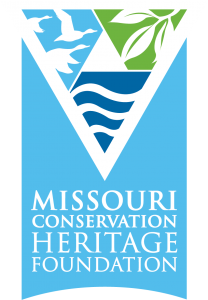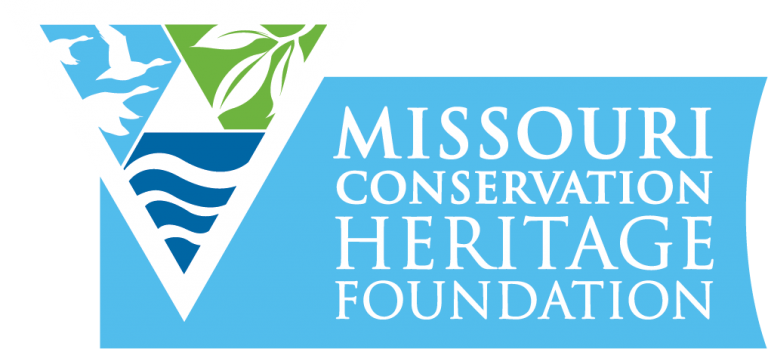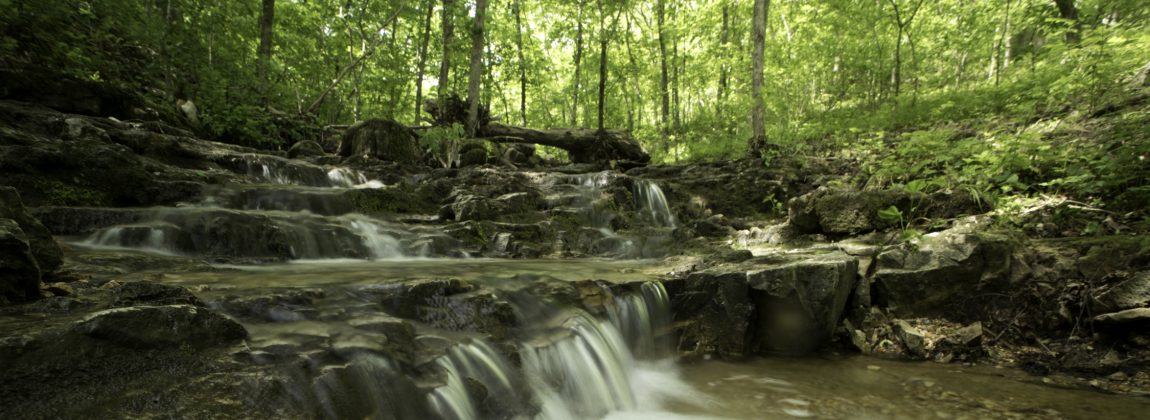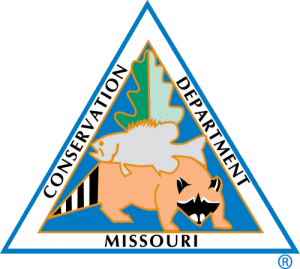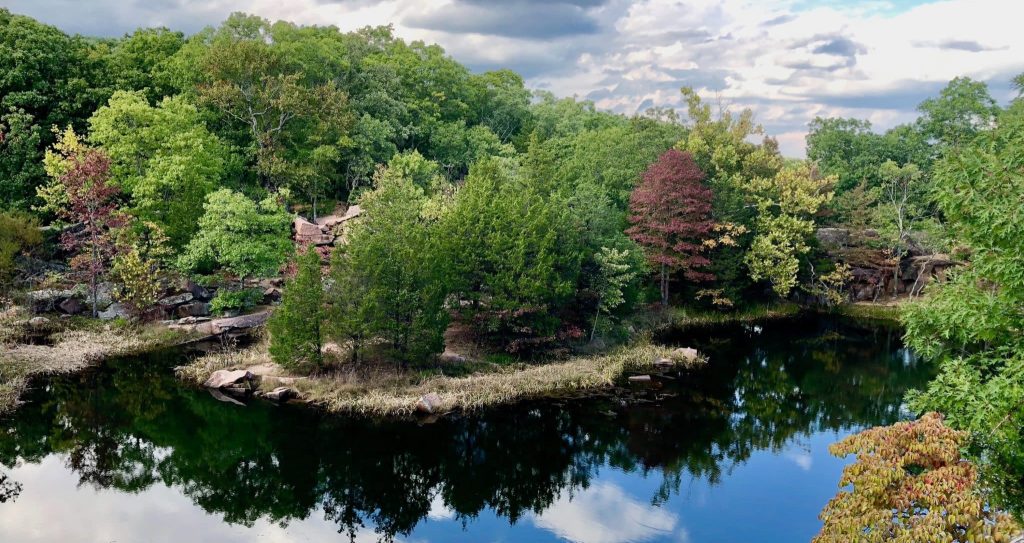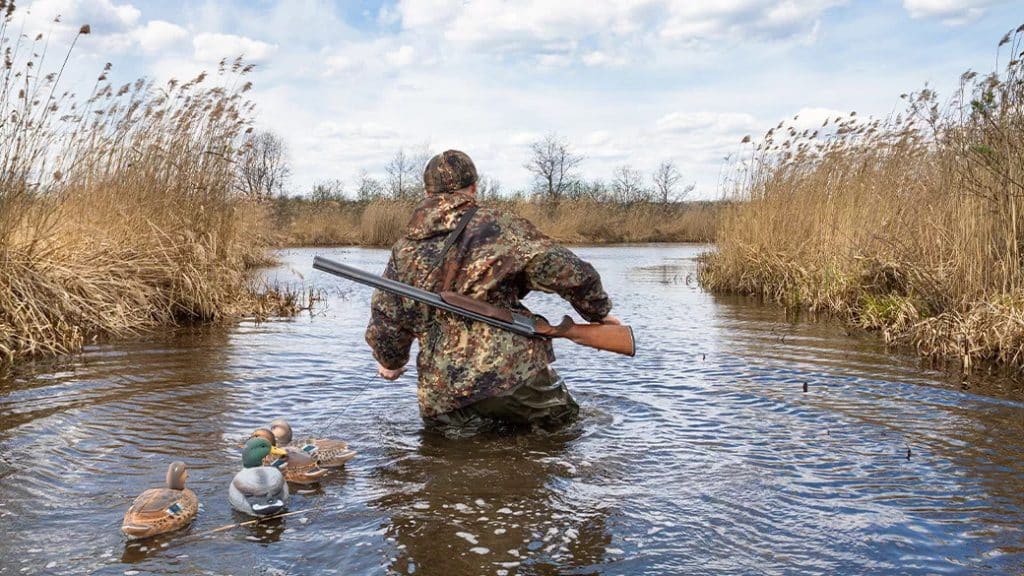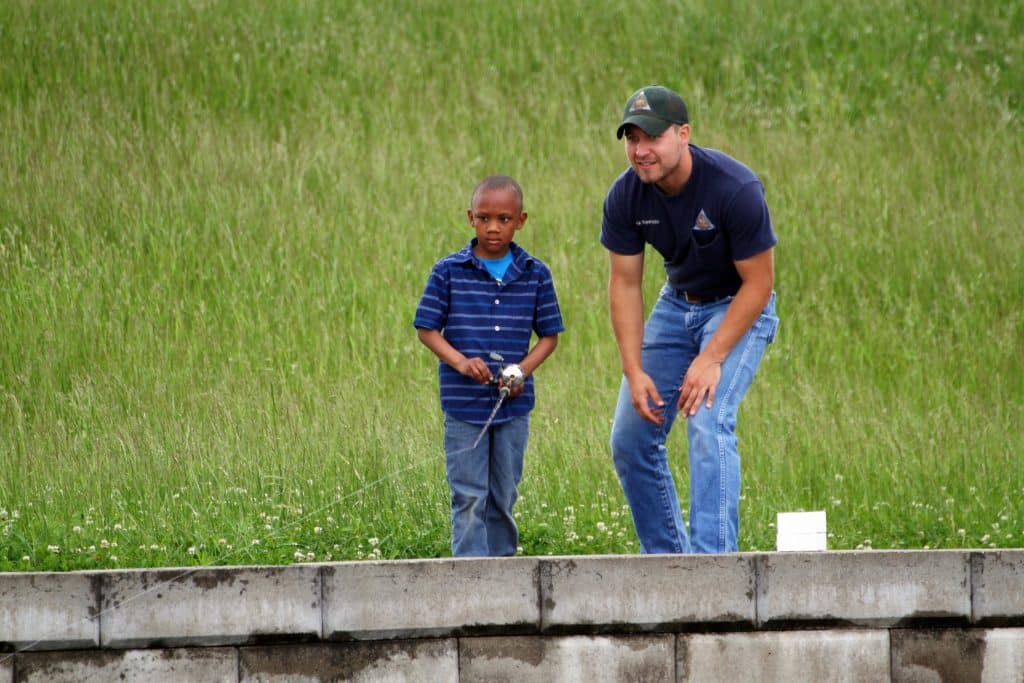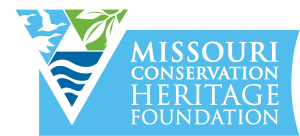All living things depend on clean and sustainable sources of water.

This Institute will train the next generation of aquatic systems conservationists, environmental scientists, and researchers, and serve as a national center of research, knowledge, and best management practices impacting fisheries, wildlife, and aquatic systems. The institute is designed to drill down on issues affecting freshwater ecosystems, from agriculture to aquifers to streams, lakes, and wetlands, and guide the development of incentive- and technology-based policies and solutions with minimal regulatory impact. The institute will be national in scope and will include several partners across the country.
Additionally, the Institute will:
- Bring together diverse partners to collectively define priority challenges.
- Conduct critical, cutting-edge, interdisciplinary research needed to anticipate, inform, or resolve priority issues and maintain healthy fisheries, wetlands, and aquatic systems in Missouri, regionally, nationally, and internationally.
- Ensure conservation workforce development through internships, cooperative education efforts, and graduate assistance programs that guarantee the next generation of researchers, conservationists, managers, and industry leaders are trained in a setting that provides real-world learning opportunities and cross-disciplinary training.
- Develop and support public policy focusing on integrated conservation and economics of water, fish and wildlife resources, agriculture, and associated outdoor recreation.
- Communicate knowledge gained through an array of platforms, including conferences, and scientific and popular publications to convey information affection the lives and decisions of every citizen.
- Build a pipeline of talent to help fill recurring vacancies at MDC as well as conservation agencies/organizations across the country.
Why Do We Care?
Nearly 90 percent of Missouri’s wetlands have been destroyed. Learn more in this article by MDC: Wonderful Wetlands.
Clean water and healthy freshwater ecosystems have never been more important to our health, safety, and future. Healthy wetlands and aquatic systems and sustainable fish and wildlife populations do not happen by accident. Many plants and animals depend on healthy ecosystems and could become threatened if those water habitats were destroyed.
A substantial percentage of Missouri’s wetlands have been converted to other uses, including agriculture and urbanization, leading to declines of plants and animals and associated recreation and other human benefits dependent on these systems. Restoration and management to support natural processes are essential to offset these losses.
We need inspired, educated, and trained conservation stewards to bring innovative expertise and research that will be used to work toward a sustainable planet.
The History
For decades, MU had a storied history of advancing fisheries science and aquatic systems. But since the early 2000s, administrative decisions, retirements, and declining budgets severely impacted the MU fisheries program to the point where adjunct professors teach classes. This lack of investment into a formalized program could be detrimental to Missouri conservation and MDC long-term conservation.
MDC Director Sara Parker Pauley and the Missouri Conservation Commission recognized the impending crisis and began working with the MCHF and MU on a solution – The Institute of Fisheries, Wetlands and Aquatic Systems.
In 2021, MCHF conducted a feasibility survey to determine interest in supporting the establishment of the Institute. Based on the positive feedback from survey participants, we launched Phase 1, a $10 million campaign to hire a director and faculty, and for operational support, to achieve the goals and objectives of the Institute. Interest and participation were strong.
The survey results and feedback helped us identify the four major components of developing the Institute:
- Faculty and Staff
- Research
- Career Pathways and Workforce Development
- Public Policy
Building people within the Chip and Teresa McGeehan Career Pathways Program
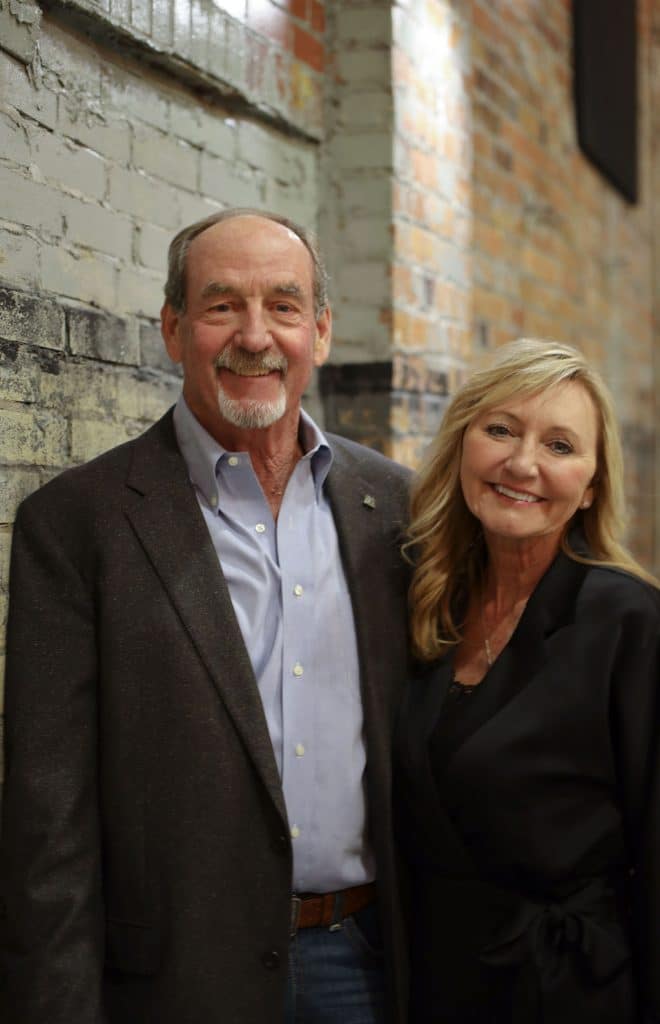
This program will develop conservation professionals, providing them with real-world field experiences and training to prepare the next generation of conservationists for the workforce. This program will be accomplished in many ways including internships, cooperative learning opportunities, workshops, scholarships, and fellowships.
Through the efforts of the Chip and Teresa McGeehan Career Pathways Program, the Johnny Morris Institute of Fisheries, Wetlands and Aquatic Systems will become a national leader in undergraduate education. Being known for turning out the best-trained and most competent students is our goal. Career pathways program students will be prepared to find solutions to our biggest conservation challenges, engage the public we serve and adapt emerging technologies to conservation problems.
Additionally, the Johnny Morris Institute will have two to six field internships and an inaugural undergraduate scholarship available for the 2024 school year. The Chip and Teresa McGeehan Career Pathways program will play a major role in developing our future conservation professionals.
The Funding
To date, more than $12 million has been raised from agency partners and private donors. The goal is to build a $30 million endowment held by MCHF allowing for the hiring of an Institute director, professors, and operational support, in addition to performing research, informing public policy, and establishing scholarships, internships, cooperative programs and fellowships.
In addition to a lead matching gift of $1 million from the Missouri Conservation Commission, $3 million from MU, $365,000 from the U.S. Geological Survey in faculty funding, and gifts from other generous donors, and all members of the MCHF Board of Directors have displayed their support and contributed funds to this initiative.
Join us to continue the momentum. Your support will help us ensure that future generations have access to world-class fishing, hunting, nature-based recreation, functioning wetlands, clean water, productive agriculture systems, and natural resource-based economies that are better than we enjoy today. We ask that you consider donating $25, $50, $100, $250, $500, or more. The future of fisheries, wetlands, and aquatics systems in Missouri, regionally, nationally, and internationally is counting on it.
To learn more about the Johnny Morris Institute of Fisheries, Wetlands, and Aquatic Systems contact MCHF Executive Director Tricia Burkhardt at tricia.burkhardt@mochf.org or 319.610.5215.
